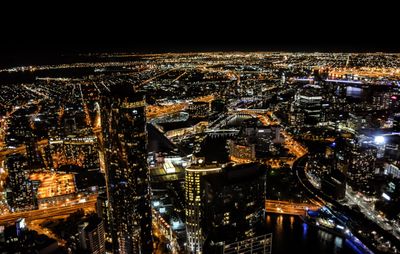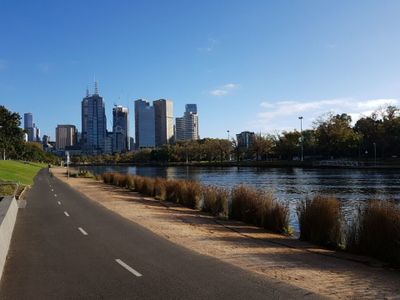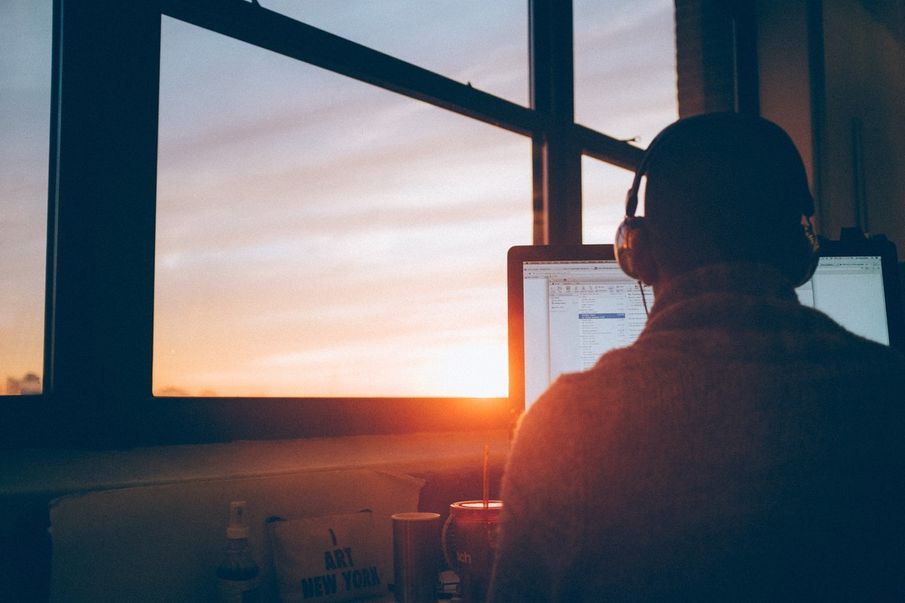Harder Isn't Better
For many years I’ve been a workaholic. My life is centred around my work, my work defines me. I wouldn’t change this as I’m happy with this life, but recently I’ve made some changes to my lifestyle that have increased both my productivity and mindfulness.
For many years I’ve worked in small businesses, I had a stint in the Victorian Government, but I’ve always been consistent in getting to work early, working solidly throughout the day, and finishing late. I’ve taken pride in both the quality and quantity of output.
Recently I changed roles, and I’m now working for a medium sized business with over 200 employees. During the interview process I made it clear that I wanted to move into a leadership role. As part of this change I re-assessed how I ensure I can have the maximum impact at work, and how I can provide the most value for the company. I decided to make a number of changes to my lifestyle, this post will cover what changes I’ve made and the impact I’ve felt over the last 4 months.
# Before work
 While working at my previous role I moved house. I went from a 1 hour commute via train to living a 10 minute walk from
the office. After that move, the hour before work was spent getting ready for the day, walking 10 minutes to work,
making a coffee in the office and sitting down to get the day started.
While working at my previous role I moved house. I went from a 1 hour commute via train to living a 10 minute walk from
the office. After that move, the hour before work was spent getting ready for the day, walking 10 minutes to work,
making a coffee in the office and sitting down to get the day started.
When I changed to my current role I decided to change my routine. I had the choice of returning to a public transport based commute or walking to the office; I chose to commit to walking the 4km each way. This walk takes around 45 minutes and not only helps to counter the negative impacts of sitting at a desk all day, but gives me the opportunity to clear my mind and prepare for the day. I use the time to think about any complex issues I’m working on, as well as plan my day.
When I reach the office I no longer go straight in, instead I head to a cafe, buy a coffee and sit outside for at least 15 minutes. I use this time to check my calendar and make sure my daily plan aligns with it, I then catch up on any tech news and scan LinkedIn for any interesting articles. If I find anything interesting I’ll read it, otherwise I’ll just people watch.
By the time I head into the office I’ve got a clear picture of what my day holds and I’m ready to jump into my work.
# During the day
I’ve always found I work more effectively if I take regular short breaks throughout the day. This is one aspect I haven’t changed as part of my transformation. Rather than having a typical lunch break I stagger breaks across the day so I work in one to two hour blocks. I don’t schedule these breaks as I’ve found they are most effective when I’m either stuck on an issue and need time to think, or if I’m already interrupted; I’ll skip these breaks if I’ve got a good flow happening and don’t want to break my concentration.
The biggest change I’ve made to my activities during the work day is to recognise what work I can be most effective at. A major part of my role is coding; but I’ve learnt to recognise when I can code effectively, when I will be less productive, and when trying to code will be a waste of time. This helps me to direct my attention (or lack thereof) to tasks that I can be most effective on.
Most of the time I can code at around 75% of my maximum output; if I need to deliver and I’m in this mindset, I’ll put on headphones (and music) to block distractions and sink my teeth into the task. If I’m feeling more productive than this I will usually code without headphones, although sometimes I will put them on (but leave the music turned off) so I don’t get interrupted (it’s an unwritten law in the office that headphones mean “do not disturb”). When I’m feeling less productive I will work on smaller tasks, or break a larger task down into many smaller tasks; I can then complete these smaller tasks between distractions. Finally, when I feel like coding will be a waste of time I’ll pick other tasks to do; this could be planning upcoming tasks, improving systems I use, or writing drafts of documentation.
As well as recognising how my mindset can affect my output (both in terms of quality and quantity) I’ve started learning how to modify my mindset based on the needs of the day. Modifying my mindset on any given day is always a challenge; sometimes I’m ready for a day of coding, but have back-to-back meetings scheduled; other days my mind is jumping all over the place and I need to deliver some complex code. In both cases I use the time before work to focus on the requirements of the day. I find focussing in this way will slowly move my thought process and will allow me to work on what is needed; it may not mean I’m at the top of my game, but I’m at least in the ballpark.
Earlier in this article I mentioned that I want to move into a leadership role. To help facilitate this I’ve become more conscious about how I respond to questions and feedback; I’m also more conscious of ensuring I get involved where I can be of value and avoiding issues that are only a distraction. Some parts of this have been extremely challenging, for example, trusting that people are providing feedback (both positive and negative) for my benefit, and not to increase their ego or reputation; or acknowledging my skills and expertise rather than my short-comings. My initial impression is that my selectiveness and eagerness to listen and learn are being well received.
# End of the day
 As a workaholic, I am no stranger to the work day being no shorter than 10 hours (often extending well past 12 hours).
This has always been a choice, and is the hardest habit to break. I’m now very conscious of how long I spend in the
office and make every effort to leave before 6pm. To achieve this I have to ensure I don’t start a large task close to
the end of the day, and also need to make sure I find an appropriate point to suspend a task if it is on-going;
previously I would have kept working on the task to try and complete it.
As a workaholic, I am no stranger to the work day being no shorter than 10 hours (often extending well past 12 hours).
This has always been a choice, and is the hardest habit to break. I’m now very conscious of how long I spend in the
office and make every effort to leave before 6pm. To achieve this I have to ensure I don’t start a large task close to
the end of the day, and also need to make sure I find an appropriate point to suspend a task if it is on-going;
previously I would have kept working on the task to try and complete it.
This change has given me the ability to attend meetups after work; and the additional free time has meant I am able to unwind and relax in the evening.
# After hours
As in the mornings, after work I commute on foot. During the walk home I try to clear my head of any work thoughts, and allow myself to relax. As I’ve been doing this I’ve become better at it; initially I would get home and still be thinking about work topics, but after just 4 months it is rare for me to still be considering a work related issue when I get home.
On the occasions when I am still thinking about work when I get home I take the time to work through the issue and come to a resolution. Sometimes this will only take a few minutes, but if it takes more than an hour of my evening I actively distract myself from the issue, if it’s important it will pop back into my head the following morning.
As an introvert I appreciate my quiet time, and most evenings I will spend at home. This time at home is often spent watching motorsport I’ve recorded on TV, playing games on my phone, doing a fitness program, teasing my cat with a laser pointer, or sometimes just listening to music on the balcony and watching the world happen around me.
# The weekend
 So far I’ve deliberately tried to avoid focussing on the health and fitness changes I’ve been making at the same time as
the work/life balance changes; but when it comes to my weekends it isn’t possible to avoid these changes.
So far I’ve deliberately tried to avoid focussing on the health and fitness changes I’ve been making at the same time as
the work/life balance changes; but when it comes to my weekends it isn’t possible to avoid these changes.
Once I started walking to and from the office I decided it was time to make an effort to become healthier. Coupled with a reduction in junk food intake (no more chocolate or soft drink - well ok, maybe sometimes) and doing some strength training, I now devote a large part of my weekend to walking. I use the weekend walks to just enjoy the scenery, sometimes to listen to music, and sometimes to chat to people. To help keep me motivated I started a meetup group called No Coffee? No Walkie!. This group meets every second Sunday at a coffee shop and walks about 10km to another coffee shop (sometimes with a coffee break in the middle). This means that on the weekends it isn’t scheduled I need to plan and verify a route.
# Impacts so far
In the last four months I’ve noticed some significant changes to my mental health, as well as my physical health.
The health and fitness changes have helped me to lose about 8kg, and have greatly increased my stamina. I’ve sure these changes have also had a positive impact on the rest of my life, but that’s not the focus of this article.
The impacts of changing my way of working have created a lot more time for leisure activities, have allowed me to find time to improve my fitness, have greatly decreased my stress levels and have increased my productivity at work. Since implementing these changes I’ve noticed my motivation and concentration levels have increased, the number of “off” days I’ve had have decreased, and I’ve generally become a happier person (not that I wasn’t already).
After implementing these changes, better defining what I want from my career (and being more vocal about it), and forcing myself to leave work in the office, I feel I’m making much better progress toward my career goals while making significantly less effort because I’m applying my energy in a much more considered way.
This article was originally published on LinkedIn The original article can be found on my LinkedIn Profile.
